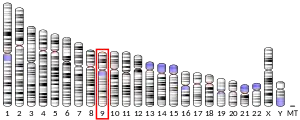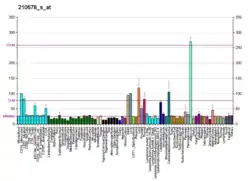| AGPAT2 | |||||||||||||||||||||||||||||||||||||||||||||||||||
|---|---|---|---|---|---|---|---|---|---|---|---|---|---|---|---|---|---|---|---|---|---|---|---|---|---|---|---|---|---|---|---|---|---|---|---|---|---|---|---|---|---|---|---|---|---|---|---|---|---|---|---|
| Identifiers | |||||||||||||||||||||||||||||||||||||||||||||||||||
| Aliases | AGPAT2, 1-BSCL, BSCL1, LPAAB, LPAAT-beta, 1-acylglycerol-3-phosphate O-acyltransferase 2 | ||||||||||||||||||||||||||||||||||||||||||||||||||
| External IDs | OMIM: 603100 MGI: 1914762 HomoloGene: 4678 GeneCards: AGPAT2 | ||||||||||||||||||||||||||||||||||||||||||||||||||
| |||||||||||||||||||||||||||||||||||||||||||||||||||
| |||||||||||||||||||||||||||||||||||||||||||||||||||
| |||||||||||||||||||||||||||||||||||||||||||||||||||
| |||||||||||||||||||||||||||||||||||||||||||||||||||
| Wikidata | |||||||||||||||||||||||||||||||||||||||||||||||||||
| |||||||||||||||||||||||||||||||||||||||||||||||||||
1-acyl-sn-glycerol-3-phosphate acyltransferase beta is an enzyme that in humans is encoded by the AGPAT2 gene.[5][6][7]
Function
This gene encodes a member of the 1-acylglycerol-3-phosphate O-acyltransferase family. The protein is located within the endoplasmic reticulum membrane and converts lysophosphatidic acid to phosphatidic acid, the second step in de novo phospholipid biosynthesis. Mutations in this gene have been associated with congenital generalized lipodystrophy, a disease characterized by a near absence of adipose tissue and severe insulin resistance. Alternate transcriptional splice variants, encoding different isoforms, have been characterized.[7]
References
- 1 2 3 GRCh38: Ensembl release 89: ENSG00000169692 - Ensembl, May 2017
- 1 2 3 GRCm38: Ensembl release 89: ENSMUSG00000026922 - Ensembl, May 2017
- ↑ "Human PubMed Reference:". National Center for Biotechnology Information, U.S. National Library of Medicine.
- ↑ "Mouse PubMed Reference:". National Center for Biotechnology Information, U.S. National Library of Medicine.
- ↑ Eberhardt C, Gray PW, Tjoelker LW (Aug 1997). "Human lysophosphatidic acid acyltransferase. cDNA cloning, expression, and localization to chromosome 9q34.3". The Journal of Biological Chemistry. 272 (32): 20299–305. doi:10.1074/jbc.272.32.20299. PMID 9242711.
- ↑ West J, Tompkins CK, Balantac N, Nudelman E, Meengs B, White T, Bursten S, Coleman J, Kumar A, Singer JW, Leung DW (Jun 1997). "Cloning and expression of two human lysophosphatidic acid acyltransferase cDNAs that enhance cytokine-induced signaling responses in cells". DNA and Cell Biology. 16 (6): 691–701. doi:10.1089/dna.1997.16.691. PMID 9212163.
- 1 2 "Entrez Gene: AGPAT2 1-acylglycerol-3-phosphate O-acyltransferase 2 (lysophosphatidic acid acyltransferase, beta)".
External links
- Human AGPAT2 genome location and AGPAT2 gene details page in the UCSC Genome Browser.
Further reading
- Garg A (Mar 2004). "Acquired and inherited lipodystrophies". The New England Journal of Medicine. 350 (12): 1220–34. doi:10.1056/NEJMra025261. PMID 15028826.
- Stamps AC, Elmore MA, Hill ME, Kelly K, Makda AA, Finnen MJ (Sep 1997). "A human cDNA sequence with homology to non-mammalian lysophosphatidic acid acyltransferases". The Biochemical Journal. 326 (2): 455–61. doi:10.1042/bj3260455. PMC 1218691. PMID 9291118.
- Aguado B, Campbell RD (Feb 1998). "Characterization of a human lysophosphatidic acid acyltransferase that is encoded by a gene located in the class III region of the human major histocompatibility complex". The Journal of Biological Chemistry. 273 (7): 4096–105. doi:10.1074/jbc.273.7.4096. PMID 9461603.
- Garg A, Wilson R, Barnes R, Arioglu E, Zaidi Z, Gurakan F, Kocak N, O'Rahilly S, Taylor SI, Patel SB, Bowcock AM (Sep 1999). "A gene for congenital generalized lipodystrophy maps to human chromosome 9q34". The Journal of Clinical Endocrinology and Metabolism. 84 (9): 3390–4. doi:10.1210/jcem.84.9.6103. PMID 10487716.
- Agarwal AK, Arioglu E, De Almeida S, Akkoc N, Taylor SI, Bowcock AM, Barnes RI, Garg A (May 2002). "AGPAT2 is mutated in congenital generalized lipodystrophy linked to chromosome 9q34". Nature Genetics. 31 (1): 21–3. doi:10.1038/ng880. PMID 11967537.
- Simha V, Garg A (Nov 2003). "Phenotypic heterogeneity in body fat distribution in patients with congenital generalized lipodystrophy caused by mutations in the AGPAT2 or seipin genes". The Journal of Clinical Endocrinology and Metabolism. 88 (11): 5433–7. doi:10.1210/jc.2003-030835. PMID 14602785.
- Brandenberger R, Wei H, Zhang S, Lei S, Murage J, Fisk GJ, Li Y, Xu C, Fang R, Guegler K, Rao MS, Mandalam R, Lebkowski J, Stanton LW (Jun 2004). "Transcriptome characterization elucidates signaling networks that control human ES cell growth and differentiation". Nature Biotechnology. 22 (6): 707–16. doi:10.1038/nbt971. PMID 15146197. S2CID 27764390.
- Fu M, Kazlauskaite R, Baracho Mde F, Santos MG, Brandão-Neto J, Villares S, Celi FS, Wajchenberg BL, Shuldiner AR (Jun 2004). "Mutations in Gng3lg and AGPAT2 in Berardinelli-Seip congenital lipodystrophy and Brunzell syndrome: phenotype variability suggests important modifier effects". The Journal of Clinical Endocrinology and Metabolism. 89 (6): 2916–22. doi:10.1210/jc.2003-030485. PMC 3390418. PMID 15181077.
- Haque W, Garg A, Agarwal AK (Feb 2005). "Enzymatic activity of naturally occurring 1-acylglycerol-3-phosphate-O-acyltransferase 2 mutants associated with congenital generalized lipodystrophy". Biochemical and Biophysical Research Communications. 327 (2): 446–53. doi:10.1016/j.bbrc.2004.12.024. PMID 15629135.
- Niesporek S, Denkert C, Weichert W, Köbel M, Noske A, Sehouli J, Singer JW, Dietel M, Hauptmann S (May 2005). "Expression of lysophosphatidic acid acyltransferase beta (LPAAT-beta) in ovarian carcinoma: correlation with tumour grading and prognosis". British Journal of Cancer. 92 (9): 1729–36. doi:10.1038/sj.bjc.6602528. PMC 2362024. PMID 15841084.
- Gomes KB, Pardini VC, Ferreira AC, Fernandes AP (2006). "Phenotypic heterogeneity in biochemical parameters correlates with mutations in AGPAT2 or Seipin genes among Berardinelli-Seip congenital lipodystrophy patients". Journal of Inherited Metabolic Disease. 28 (6): 1123–31. doi:10.1007/s10545-005-0038-5. PMID 16435205. S2CID 2333336.
- Lloyd EE, Gaubatz JW, Burns AR, Pownall HJ (May 2007). "Sustained elevations in NEFA induce cyclooxygenase-2 activity and potentiate THP-1 macrophage foam cell formation". Atherosclerosis. 192 (1): 49–55. doi:10.1016/j.atherosclerosis.2006.06.014. PMID 16870193.
This article is issued from Wikipedia. The text is licensed under Creative Commons - Attribution - Sharealike. Additional terms may apply for the media files.





